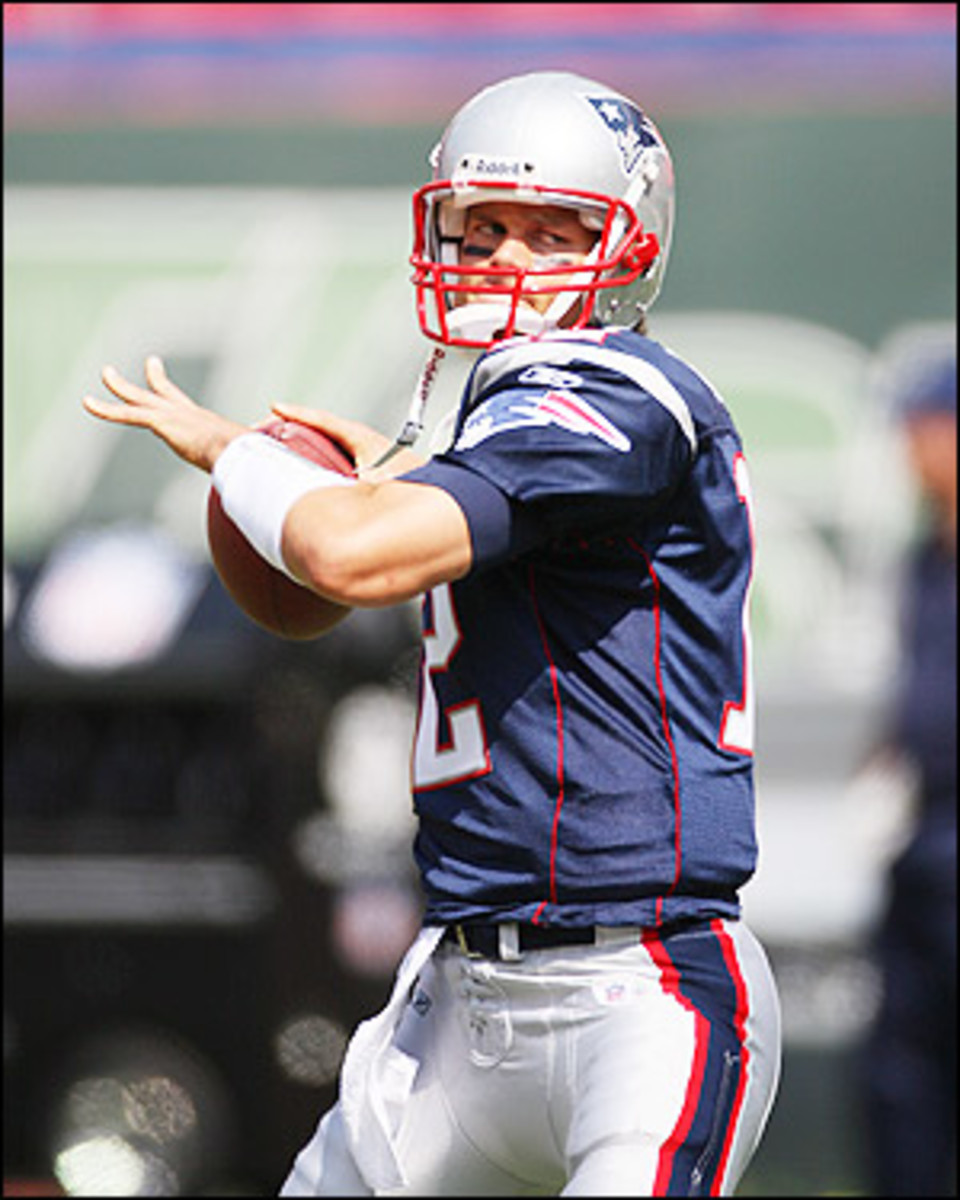
QB comes first
Defense wins championships. That is the NFL bumper sticker that has survived so many cold winters, an ode to Nitschke and Mean Joe and the first L.T. It is a nod to frozen tundra and football in the trenches, a tip of the cap to the untamed spirit of the game.
But what truly keeps NFL owners and general managers up at night is not the search for the next great defensive tackle or cover corner.
This is still the league of the quarterback, perhaps now more than ever.
As Sunday's meeting between the New England Patriots and Dallas Cowboys draws nearer, it is instructive to see what the five teams with the highest winning percentage in the league have in common.
The Patriots (5-0) have Tom Brady. The Colts (5-0) have Peyton Manning. The Cowboys (5-0) have Tony Romo. The Packers (4-1) have Brett Favre. The Steelers (4-1) have Ben Roethlisberger.
There is a bagful of wins and Super Bowl trophies between them, not to mention the less tangible qualities of leadership and toughness. Find a franchise quarterback and, more often than not, you have a winning formula.
While Dan Marino proved that even a Hall of Fame quarterback does not guarantee a Super Bowl title, it still remains the shortest route to wins, championships and dynasties.
It is why BillWalsh's San Francisco 49ers, even with Joe Montana, traded for Steve Young in the hopes of finding a successor who could sustain excellence. It is why former Giants general manager Ernie Accorsi traded Philip Rivers and three draft picks for Eli Manning and a shot at those bloodlines. It is why the Eagles drafted Kevin Kolb this year, even though they have Donovan McNabb, and why the Jets drafted Kellen Clemens last year, even though they have Chad Pennington. The search for quarterback greatness is a 24-hour business.
Having the right quarterback allows a coach and general manager to worry about other things, like stopping the run and creating a pass rush and building an offensive line.
With no need to worry about Brady, Bill Belichick can focus on all of those linebacking schemes.
And Peyton Manning? Tony Dungy says his quarterback came back from the Colts' Super Bowl season intent on elevating his completion percentage. From a career-high of 67.6 percent in 2004, it had dropped to 67.3 in 2005 and to 65.0 last season. Through five games this season, Manning has completed 69.7 percent of his throws.
With Manning the ultimate student and self-starter, Dungy, like Belichick, can tinker elsewhere, instructing a Colts team that is already plus-7 in takeaways/giveaways.
The difference between a team with superior quarterback play and a team with quarterback struggles may never have been more pronounced than in the early 1990s in the NFC West. From 1990 to 1998, as the Rams leaned on the inconsistent Jim Everett and the erratic Tony Banks, the 49ers beat the Rams 17 straight times, largely on the arms of Montana and Young.
When Kurt Warner took over as the Rams quarterback in 1999 -- the same year that Young played his final NFL game -- the Rams tore off six straight wins against the 49ers and won their first Super Bowl.
The Colts just aren't the Colts without Manning, New England isn't New England without Brady and the 49ers wouldn't have been nearly as successful without Montana and Young adding color to Walsh's Xs and Os.
While there are exceptions to every rule (poor Trent Dilfer), the NFL history books don't miss much when it comes to quarterbacks: Unitas, Namath, Staubach, Bradshaw, Elway, Aikman, and on and on it goes.
Manning and Brady are the league's top dogs now, and general managers and coaches are surely dreaming about the next great quarterbacks. There is a reason teams in the NFL draft have selected a quarterback with the first pick in six of the last seven years and eight of the last 10. As Mike Holmgren once said of the all-important quarterback: "He is the star."





